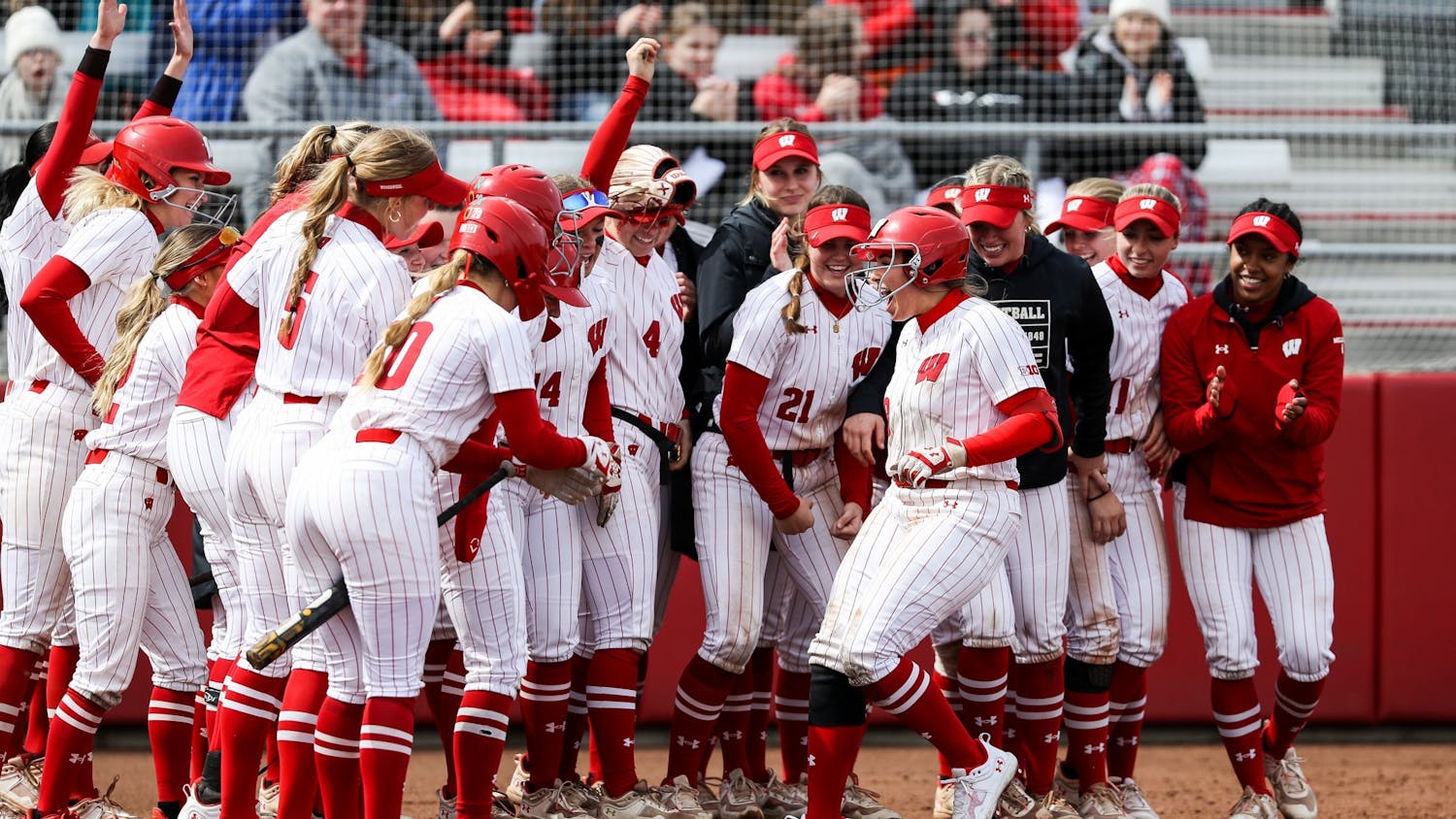CHAMPAIGN, Ill. – When redshirt junior quarterback Joel Stave left the game with a head injury late in the first quarter, redshirt junior Bart Houston was thrust into an uncomfortable spot. He came into the game having only thrown 13 passes in his entire Wisconsin career before Saturday, and had never played during meaningful game situations.
Houston was forced to quickly adapt to what Illinois was throwing at him, efficiently take care of his job and set his team up with the best chance to win while facing hurdles that were completely out of his control. The funny thing is that the same thing can be said for Wisconsin’s defense.
All year long, defensive coordinator Dave Aranda’s unit has had to contend while playing opposite an offense that falls into a one-dimensional style of play, struggles to hold on to the ball for extended periods of time and goes through long scoring droughts. For the most part, UW’s defense is charged with playing mistake-free football and keeping opposing teams within striking distance at all times, and that’s exactly what it accomplished Saturday.
The Iowa game is the first, ugliest and most glaring example of the discrepancy between Wisconsin’s offense and defense. Iowa’s not an offensive juggernaut by any measure, and the Badgers exposed that, allowing only 10 points and holding the Hawkeyes to 4.4 yards per play. Each of Iowa’s scoring drives came as a result of a Wisconsin turnover, and each started in UW territory.
Wisconsin was shakier in its matchup against Nebraska, but it still contained an offense with big-play capabilities and put the offense in position to win multiple times in the fourth quarter.
Against Illinois, the defense was dealt perhaps its worst hand all season. With junior running back Corey Clement and redshirt freshman Taiwan Deal not traveling to Champaign, it was clear from the start that the Badgers were likely going to fall into the same habit of relying heavily on the pass, which inherently reduces time of possession due to incompletions.
To make matters worse, when Stave was knocked out, there was no indication whatsoever that Houston would be able to step up to the challenge and at least perform serviceably. Senior safety Michael Caputo said that wasn’t a concern among the defense, though.
“I wouldn’t say the mindset changes at all in terms of any injury on any side of the ball in any phase,” Caputo said. “We’re always saying as a defense that we need to take this over, that we need to keep enforcing and imposing our will on the opposing offense. Whenever Joel or your starting quarterback goes down, it’s definitely up to the offense and the leaders on the team to make sure that everyone keeps their goals in sight.”
That levelheadedness paid dividends for the Badger defense. Wisconsin ended up winning the position battle, 40:09 to 19:51 in large part to Houston’s surprising ball control and Illinois’ four three-and-outs.
“We had a lot of things go bad our way and you could have just hung your hat and said ‘oh, this is it,’ but I think a lot of guys fought back,” senior linebacker Joe Schobert said. “The whole team fought back, turned the momentum back in our favor, especially in the second half.”
Wisconsin didn’t maintain that momentum throughout the entire half, as a gashing 36-yard touchdown run by running back Ke’Shawn Vaughn gave Illinois a 13-10 lead with 7:48 left in the third quarter, but it tightened up after that. Wisconsin allowed just 106 yards of total offense to Illinois from then on, 50 of which came in garbage time on the Illini’s final drive.
“From that point forward, it seemed like we were getting a lot of three-and-outs, reading plays correctly, making stops for negative yards or limiting the pass play,” Schobert said. “The offense did a great job getting the ball back in the end zone a couple times so it allowed us to be more attacking again.”
Wisconsin again employed a defensive back-heavy scheme, often utilizing six or even seven defensive backs on the field at any given time to limit quarterback Wes Lunt’s vertical passing game. Redshirt junior Vince Biegel and the rest of the defensive front applied plenty of pressure all afternoon even without the added benefit of numerous linemen in the middle.
“I think it’s speaking about our pass rushers, we’ve got talented pass rushers,” Biegel said. “Coach Aranda feels that we can put four guys on the defensive front and we can put our ears back and get after it. So give credit to our outside linebackers, give credit to our defensive front. I personally think we’ve got one of the best [defensive] fronts in the country from a standpoint of talented guys, guys who can get after the pass rusher.”
Wisconsin didn’t finish with a sack, but it spent more than enough time in Illinois’ backfield to disrupt the flow of its offense and cause problems, negating any challenges UW faced on its own side of the ball.






